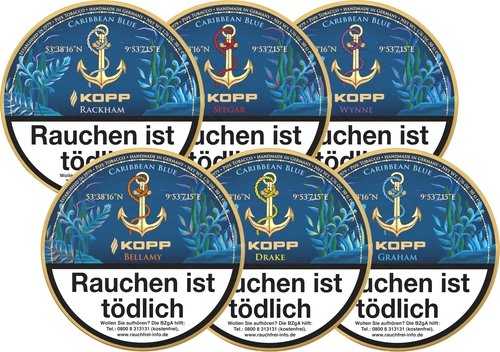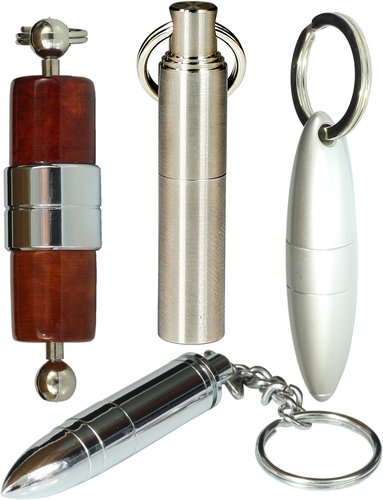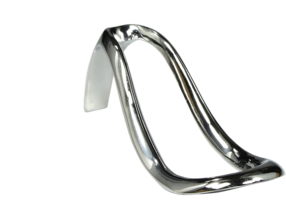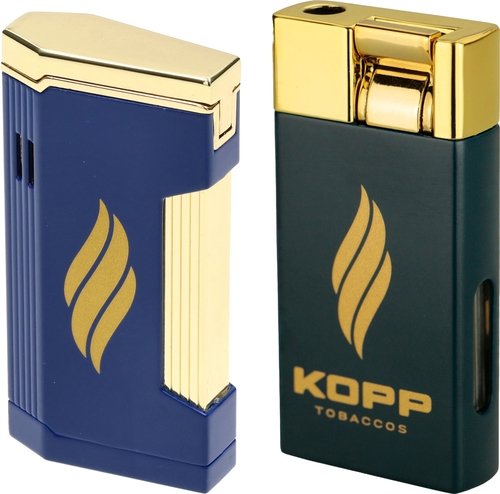The History of Kopp: From Martin Wess to the Present Day
On April 15, 1919, Martin Wess, the great-grandfather of current owners Oliver and Thilo Kopp, laid the foundation for a long-standing family tradition. As a master fine leather craftsman, he supplied renowned clients like Goldpfeil with cigar cases and processed fine leather for Swiss watch manufacturers to create delicate travel clock cases. In the late 1930s, the leather goods industry flourished, and with it, the company grew. During this period, Martin’s children, Gottfried and Frederike, along with Frederike’s husband, Friedrich Kopp, joined the business. The company expanded, employing nearly 100 people and even operating a sales office on New York’s 5th Avenue to circumvent high import tariffs.
After Martin Wess’s death in 1947 and his son Gottfried’s passing two years later, daughter Frederike took on the challenging task of rebuilding the heavily damaged production facility in Offenbach. With the support of her close confidante and authorized signatory Karla Kühn, she managed to revive existing business relationships and overcome financial difficulties. Despite health setbacks, Frederike prepared for the transition to her son, Bernd Kopp, before passing away in 1954. Bernd, who became an orphan at just 14 years old, continued the family legacy after completing his business training. With the help of experienced authorized signatories Kühn and Weiss, he successfully led the company forward and expanded the product range to include high-quality pipe pouches, marketed under the Wess Design brand (Martin Wess).
From Leather Cases to the World of Pipe Tobacco
In 1971, Bernd Kopp and pipe expert Lothar Otto founded Otto & Kopp, expanding the portfolio to include exclusive pipe brands such as Ascorti, Caminetto, and Nørding. After Lothar Otto’s passing, Otto & Kopp merged with Martin Wess to form today’s Kopp GmbH & Co. KG. A milestone was the collaboration with Michael Kohlhase and the acquisition of 80% of the shares in Kohlhase & Bühler in 1979, laying the foundation for expansion into the pipe tobacco segment. The acquisition of the renowned English pipe tobacco manufacturer Robert McConnell and the traditional brand Rattray’s were pivotal. In the 1990s, the company also benefited from the global cigar boom, which further accelerated growth.
Expansion and Digitalization
In the late 1990s, Oliver and Thilo Kopp joined the company and quickly embraced the opportunities of digital commerce. Through strategic decisions, Kopp Pipes became the largest pipe importer in Europe. The introduction of proprietary brands and expansion into international markets underscored the company’s innovative strength.

In 2004, Kopp Pipes acquired a 40% stake in Germany’s oldest cigar house, Dürninger, but divested this share in 2021. In 2019, Oliver Kopp took over as CEO from his father and initiated a new growth strategy. Since early 2023, Oliver and Thilo Kopp have been the sole owners of Kopp Tobaccos. With an experienced team and new brand representations in the premium segment, the company continues to focus on expansion.
Kopp Tobaccos: High-Quality Pipe Tobaccos from Around the World
As a leading importer of pipe tobaccos, Kopp collaborates with renowned manufacturers from various countries, including Cornell & Diehl from the USA, Samuel Gawith from the UK, and Gladora from Turkey. A future collaboration with a Brazilian tobacco manufacturer will further expand the portfolio. The production of house brands for the specialty tobacco trade has always been one of Kopp’s core competencies. The historic buildings in Rellingen, once home to Wehde Tabak, provide the ideal environment for this.
In addition to renowned brands like Rattray’s and Robert McConnell, Kopp is increasingly producing pipe tobacco under its own name. Particularly sought after are the limited editions such as the Kopp Limited Editions and the Kopp Winter Editions, which impress with their exquisite aromas and appealing packaging.
A crucial step for the future is the commissioning of proprietary flake presses. This will enable greater independence from major manufacturers and a more flexible production process. What once began with fine leather goods has now evolved into a successful family business with 85 employees that, even after more than 100 years, remains committed to tradition, quality, and innovation.











